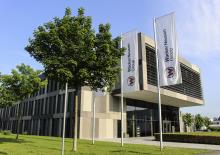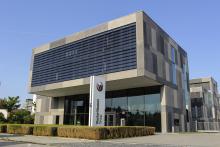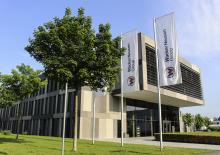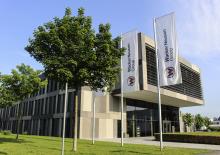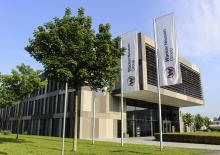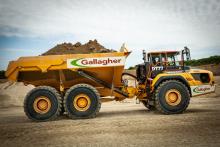Wacker Neuson is bullish for its 2021 financial performance.

Wacker Neuson, based in Munich, Germany, is bullish for its financial performance in 2021
Wacker Neuson is bullish about its prospects for 2021. The firm saw sales drop because of the pandemic, with turnover falling 15% to €1.6 billion for 2020 compared with 2019.
Alexander Greschner is chief sales officer (CSO) for German firm Wacker Neuson. He explained that despite the drop in sales in 2020 and the challenges posed by the COVID 19 pandemic, the company’s prospects are good for 2021. “We have a new way of working because of COVID,” he commented.
The pandemic has given a strong boost to digitalisation in the construction sector. This is of particular note, with greater integration of the dealers (and cooperation between them) in the US for example through the company’s new digital platform. The 300 or so dealers in the EAME territory are also set to benefit from this new digital platform.
Sales dropped around 40% in the Americas in 2020, with the firm closing its US factory for fourth months. Business was affected particularly badly in Latin America and the company closed its factory in Brazil for six months. The firm’s plant in China was closed for just one month and Greschner said that the business activity has picked up again well in China. The majority of Wacker Neuson’s business (around 80%) is in the Europe, Middle East and Africa (EAME) sales region, which performed well in 2020. Greschner said, “We increased business in Germany in 2020.”
Greschner said that Wacker Neuson is confident of its ability to capitalise on demand for compact machines in the US, particularly for the 80,000/year skid steer loader market in which the firm already has a strong share. The company is also bullish about its prospects in China with its facility in Shanghai, which is supplying machines and building a strong share of the local market for mini excavators, as well as for other compact equipment. This facility is also being used to supply machines to other emerging markets, particularly in South East Asia.
For the product range, the company’s development of electric power options provides a strong focus for future sales, having introduced the first units five years ago. Greschner said, “We are the company with the largest range of battery-powered construction equipment.”
The electric units offer benefits to the customer, costing much the same as internal combustion engine models, but with lower maintenance and running costs. Greschner said, “You reduce downtime and improve availability.”
He added, “The reduced noise allows users to work longer hours and close to noise sensitive areas. The green construction site is already a reality.”
The battery-powered range already includes two mini excavators, two wheeled loaders, a wheeled dumper, a crawler dumper/loader and an array of hand-controlled tools including compaction equipment, rammers and the novel battery pack-powered unit for concrete consolidation. Greschner commented, “We will have bigger electric excavators available as bigger batteries become available.”
Meanwhile, an array of new compact products are now being offered, including the RD7. This is a 700kg, double drum walk-behind roller with 650mm wide drums and for use on both soil and asphalt compaction. There is also the new RTX articulated trench compactor, with remote control and a choice of two modes, with high frequency for use on gravel, and high force for use on soil containing clay. Also new are compact excavators for the 4tonne, 5tonne and 6tonne classes, the ET42, EZ50 (zero tailswing) and ET58 models respectively. These all benefit from Wacker Neuson’s novel vertical digging system (VDS), which allows a user to ensure that the machine remains upright even on uneven ground, but without adding to overall height and helping reduce backfilling. Other notable additions to the range include the versatile TH412 telehandler, which can lift a 1.2tonne load to a height of 4m and the 3tonne class WL28 wheeled loader.

